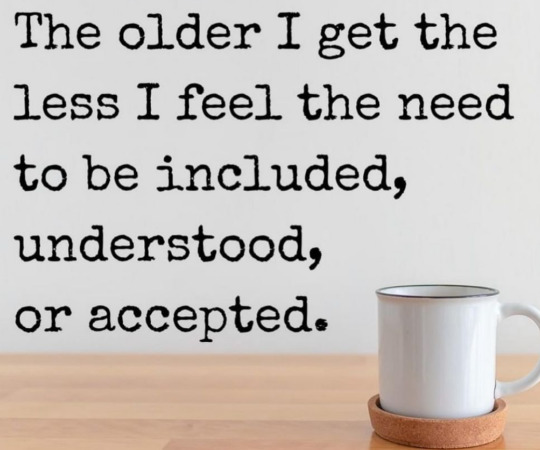#maturity and self-improvement
Explore tagged Tumblr posts
Text
9 Signs You're Growing Stronger From Within from Embracing Emotional Maturity
Emotional maturity is a profound quality that sets the foundation for our interactions, relationships, and overall well-being. It encompasses self-awareness, empathy, resilience, and the ability to navigate life’s challenges with grace and understanding. As we strive towards personal growth, recognizing the signs of emotional maturity can serve as a compass guiding us towards a more fulfilling…
#becoming emotionally mature#embracing emotional growth#emotional healing#emotional intelligence#emotional maturity#emotional strength building#growing stronger within#inner strength#maturity and self-improvement#mental resilience#personal development#personal empowerment#self-awareness signs#self-growth journey#signs of emotional growth
0 notes
Text
Femme Fatale Guide: Tips To Become More Emotionally Intelligent
Embrace self-awareness & self-reflection: Observe how you feel, behave, and how people generally respond to your words/actions in different situations
Practice self-regulation: Learn to differentiate between your feelings and the actions that would be appropriate in a specific setting or interaction. Internalize that feelings are fleeting and non-factual. You're in control of how you respond/(don't) act on these emotions
Engage in active listening: Pay attention to what others are saying with the intent of understanding, not responding
Focus on emotional differentiation: Understand where your thoughts, feelings, intentions, and opinions end and another person's identity/perception begins
Display radical empathy and acceptance: Understand that almost all people's words and actions result from their own beliefs, past experiences, and current life circumstances/priorities. Put yourself in their shoes when attempting to understand their choices, behaviors, and times they come to you to discuss a problem, success, or major life decision. Accept that you can only control what you do. Very little of other people's actions/the world's workings are personal. Things are happening around you, not to you
Let go of your ego: View yourself as objectively as possible with the potential for improvement. Abolish any superior complex or overwhelming desire to prove your self-importance in others' lives and decisions
Remain open-minded: Question your own beliefs and opinions. Stay curious as to why you believe them to be true/authentic to you. Allow your opinions to change or have the capacity to modify your beliefs upon hearing new information. Understand your worldview and values are valid, but they're not definitively correct beliefs, just because they resonate/feel comfortable for you
Be receptive to feedback: Embrace constructive criticism as a self-improvement tool. Approach it with curiosity and optimism, not as a personal attack
Differentiate between your feelings and capabilities: Your thoughts are not facts. Remember you can do things you don't feel like doing most of the time (work, waking up in the morning, working out, etc.). Learn the difference between being a slave to your emotions and genuinely running out of energy
#emotional intelligence#emotional regulation#emotional maturity#inner work#social skills#socializing#networking#social interaction#emotional resilience#people skills#self improvement#successhabits#glow up tips#femme fatale#dark femininity#dark feminine energy#it girl#high value woman#the feminine urge#queen energy#female power#dream girl#female excellence#high value mindset#life tips#adulting#life advice#femmefatalevibe#communication skills#emotional wellness
1K notes
·
View notes
Text
It can be extremely difficult to take constructive criticism, but it's imperative that you work on making yourself a safe person to criticize. People need to know that if they come to you with constructive criticism, you're not gonna explode on them with volatility or start shitting on yourself (which puts them in the uncomfortable position of then having to comfort you). If you act like that, then it's going to be incredibly difficult to maintain healthy relationships of any kind. Communication is key; constructive criticism is part of communication. Be open to the idea that you can be wrong and have things you need to work on, or that you can be wrong and not be the worst person on the planet.
#self improvement#reminder#i recently interacted with someone who was extremely explosive and manipulative#you can be manipulative without meaning to be btw#and this person couldn't accept any form of criticism without literally exploding with emotion#and blaming other people constantly#it fucking sucked especially because this behavior was normalized within the friend group#and for someone who is my age and spouts the importance of maturity and constantly critcizes others#that shit is beyond unacceptable
109 notes
·
View notes
Text
Green flags in a relationship or friendship are the positive signs that indicate healthy, supportive, and trusting connections. They’re the traits and behaviors that make you feel valued, respected, and understood. Here are some key green flags to look for:
1. Open Communication: Healthy relationships are built on honest, open dialogue. Whether it’s sharing feelings, discussing issues, or celebrating successes, communication is clear and respectful. There’s no fear of being judged or misunderstood.
2. Mutual Respect: In a great relationship or friendship, both parties respect each other’s boundaries, opinions, and differences. You’re both treated as equals, with no one feeling diminished or controlled.
3. Supportive Encouragement: You lift each other up, celebrate each other’s victories, and encourage each other during challenges. There’s a genuine desire for each other’s success and well-being.
4. Trust and Reliability: Trust is fundamental. You can rely on each other to keep promises, be there during tough times, and maintain confidentiality. You feel safe being vulnerable and open without fear of betrayal.
5. Emotional Availability: Both of you are willing to share and listen to emotions, creating a deeper connection. You’re there for each other when needed and show empathy towards each other’s experiences.
6. Independence and Space: A healthy relationship allows space for both individuals to grow and pursue their personal goals. There’s a balance between spending time together and respecting each other’s independence.
7. Shared Values: Having common values and goals helps create harmony and alignment in the relationship. While differences are natural, shared core beliefs create a stronger bond.
8. Fun and Laughter: A positive relationship has moments of joy, playfulness, and laughter. You enjoy each other’s company, have fun together, and share lighthearted moments.
9. Constructive Conflict Resolution: Disagreements happen, but a green flag is how you handle them. Healthy relationships focus on resolving conflicts respectfully, listening to each other, and finding compromise rather than blaming or escalating issues.
10. Non-toxic Positivity: Both parties bring a positive energy to the table, without toxic positivity or forcing happiness. It’s about embracing the ups and downs together and offering real, supportive encouragement.

Recognizing these green flags can help you nurture healthy, thriving relationships or friendships where both individuals feel valued, supported, and empowered.
#ambitious women#beautiful women#glow society#beauty#the glow society#fit beauty#health#self love#self improvement#self care#women’s health#black girl moodboard#healthy food#self development#tumblr girls#health and wellness#boss women#womens workout routines#fit girls#becoming that girl#black girl beauty#beauty haul#beauty blogger#mature beauty#beauty bloggers#black beauty#beautiful#beauttiful girls#high value dating#high value woman
80 notes
·
View notes
Text
The 5 Laws of Maturity: 1) React Less: Gain control over your emotions and reactions. When you master this, you stop letting others dictate how you feel. 2) Expect Nothing, Cherish Everything: Joy comes easier when you appreciate every moment for what it is, without expectations. 3) Give Your All and Trust the Journey: Commit fully to your endeavors and trust the path you're on, knowing that dedication opens doors to new possibilities. 4) Choose Your Friends Wisely: The company you keep can lift you up or pull you down. Surround yourself with people who inspire and motivate you to be better. 5) Worry Less, Live More: Focus on living in the present and savoring life's experiences, rather than getting lost in worries about what might never happen.
#life lessons#personal growth#you#life#perspective#people#self improvement#goals#life goals#reality#maturity#expectations#worry#reaction
105 notes
·
View notes
Text

They match each other’s freak
#no but rlly they’d be awful together#or great#it depends on when they start dating like if Jenny is in her obsessive and trying to make jealous era or her self improvement and maturity#era and if Cathy is still lowkey crazy or not#Betty says she’ll help them work it out if they go to in and out for her and get her ten burgers#my art#fanart#aphmau#aphblr#Cathy x Jenny ship name ?#canny is funny to me lol#cathy aphmau#jenny aphmau#Aphmau Cathy#Aphmau Jenny#aphmau fc university#cathy fc university#jenny fc university#falcon claw university#fc university#fc university Cathy#fc university Jenny#Betty aphmau#Aphmau Betty#bisexual#Aphmau fanart
33 notes
·
View notes
Text

Cultivate Self-Awareness Understand your emotional state and how it affects your thoughts and actions.
Observe and Label Your Emotions Recognize and name your emotions to gain control over them.
Understand Your Emotional Triggers Identify the situations or behaviors that provoke strong emotional responses.
Monitor Your Behavioral Patterns Notice how your emotions influence your actions and reactions.
Embrace Your Emotions Without Judgment Accept your feelings without labeling them as good or bad.
Be Receptive to Constructive Feedback Listen to others' feedback, especially when it helps you grow emotionally.
Master Deep Breathing Techniques Use deep breathing to calm yourself when emotions get overwhelming.
Harness Your Emotions for Positive Outcomes Use your emotions to motivate, inspire, or solve problems rather than letting them control you.
Express Yourself Assertively and Respectfully Share your feelings clearly and confidently, while respecting others.
Shift Your Emotional State Intentionally Learn how to change your emotional state when needed.
Decode Nonverbal Communication Pay attention to body language and tone to understand others’ feelings.
Practice Active Listening Truly listen to others without planning your response while they speak.
Cultivate Empathy Try to understand and share the feelings of others, creating stronger bonds.
Challenge Negative Personalization Don’t take things personally; sometimes it's not about you.
Be Flexible in Your Emotional Responses Adapt your emotional reactions to fit the situation, avoiding rigidity.
Choose to Respond, Not React Take a moment to think before reacting emotionally to situations.
Use Your Mental Pause Button Pause to regain composure before you react when feeling overwhelmed.
Take Responsibility for Your Feelings and Actions Own your emotions and their effects on others, without blame.
Cultivate a Positive, Solution-Oriented Mindset Focus on solutions rather than problems to maintain emotional balance.
Seek Resolution in Conflicts Approach conflict with a goal of understanding and resolution, not winning.
#selfawareness#mindfulness#emotions#selfcontrol#triggers#emotional growth#emotional impact#mentalhealth#self improvement#relaxation#emotional skills#mental clarity#empathy#selfworth#self love#boundaries#emotional flexibility#selfgrowth#mindful response#reaction vs response#self regulation#accountability#self responsibility#maturity#positive mindset#growth#emotional intelligence
14 notes
·
View notes
Text

#maturity#mental growth#self growth#self reflection#self improvement#new life#letting go#inspirational quotes#new beginnings#positivity#self help#mental health#be yourself
135 notes
·
View notes
Text

#ambitious women#glow society#beautiful women#beauty#the glow society#fit beauty#health#self love#self improvement#self care#women’s health#black girl moodboard#tumblr girls#boss women#healthy food#self development#fit girls#health and wellness#womens workout routines#becoming that girl#black girl beauty#beauty haul#beauty blogger#mature beauty#black beauty#makeup blogger#girl blogger#fashion blogger#blogging#beauty bloggers
18 notes
·
View notes
Text

#self love#self care#successmindset#girl power#glowing up#feeling motivated#growth#inspiring quotes#moneymindset#life#mature beauty#mature woman#girl bosses#be confident#female beauty#beautiful women#fashion#it girl#this is a girlblog#this is what makes us girls#inner peace#self worth#self improvement#satisfaction#blessed#i am blessed#it gives me life#clean girl#clean girl aesthetic#cleancore
15 notes
·
View notes
Text
25 Lessons I’ve Learned in My 25 Years (Part 1)
1. Growth is not linear. I had my life together at 21. I fell apart at 22. I picked up the pieces at 23 and I excelled by 24. I will likely have an off year again. That’s okay.
2. Everyone has their own story. By learning their story you may be able to understand their actions. Understanding their actions does not mean you need to justify their actions.
3. Some people stay around for life, some people stay around for seasons. Enjoy your friends while you can. I’ve moved across the country twice. There are so many people that have touched my souls for a summer or a night and have disappeared. Enjoy those connections while you can. Foster those connections. Even if you know things won’t be long term. Don’t be afraid to reach out.
4. There’s no point in being “too cool” for things. At the end of the day, you’re the only opinion that matters. The things that make you seem soft make you human. Small talk with your neighbors. Invite others to events. Talk about your passions. Try things that you aren’t good at. Keep at things even if you aren’t good.
5. Everyone is faking it til they make it. You never really grow up. You never really know all the answers. You can grow a lot with life experience and introspection, but plenty of established adults are missing one or both of those. Take lessons from everyone but realize just because someone is older than you does not mean they’re more mature, or knowledgeable or wise. Be open to hearing them, but use your own judgment.
#growth#self improvement#mindset#journal#med student#self love#musings#thoughts#philosophy#life lessons#self growth#maturity#introspection
7 notes
·
View notes
Text
Learn to voice your opinion in a polite way, without caring about other people's reaction. You can say something with the best intentions and there'll still be someone, who'll argue with you based solely on feelings, without giving any logical counterargument, or even someone who'll start calling you the worst names, just because your opinion is different than theirs. Not everyone understands, that disagreeing with them is not personal and that the person who disagrees may actually be right sometimes. There are people, who are ignorant and proud of it and who believe their way of thinking is the only possible correct one and anything else is not only wrong, but a crime and equal to being worthless as a human. There are people, who react emotionally and think their feelings are the ultimate argument for everything. You don't have to care. You don't have to argue with them, which is usually pointless anyway, because you can't convince someone, who believes, they already know everything and their only goal is to make you look like an idiot for having the audacity to voice an opinion they and their echo chamber don't agree with. You can say, what you want to say and then leave, or try to discuss it a bit, but leave when you notice, that this interaction is starting to resemble a group of children, shouting at each other, instead of a civilized discussion of adults. Say, what you think and let them scream into the void.
#reminder#positive vibes#positivity#hope#positive#mental health#mental wellbeing#mental wellness#positive mental attitude#positive thoughts#relationships#human interaction#argument#disagreement#misunderstandings#positive thinking#growth mindset#positive mindset#hopefulness#hopeful#mental energy#mental strength#self confidence#self care#self worth#self improvement#emotions#emotional maturity#discussion#anger
6 notes
·
View notes
Text

#Maturity
#life lessons#you#personal growth#life#perspective#people#self improvement#reality#goals#life goals#maturity#immaturity
12 notes
·
View notes
Note
Hi femme!
How can i become emotionally intelligent?
Embrace self-awareness & self-reflection: Observe how you feel, behave, and how people generally respond to your words/actions in different situations
Practice self-regulation: Learn to differentiate between your feelings and the actions that would be appropriate in a specific setting or interaction. Internalize that feelings are fleeting and non-factual. You're in control of how you respond/(don't) act on these emotions
Engage in active listening: Pay attention to what others are saying with the intent of understanding, not responding
Focus on emotional differentiation: Understand where your thoughts, feelings, intentions, and opinions end and another person's identity/perception begins
Display radical empathy and acceptance: Understand that almost all people's words and actions result from their own beliefs, past experiences, and current life circumstances/priorities. Put yourself in their shoes when attempting to understand their choices, behaviors, and times they come to you to discuss a problem, success, or major life decision. Accept that you can only control what you do. Very little of other people's actions/the world's workings are personal. Things are happening around you, not to you
Let go of your ego: View yourself as objectively as possible with the potential for improvement. Abolish any superior complex or overwhelming desire to prove your self-importance in others' lives and decisions
Remain open-minded: Question your own beliefs and opinions. Stay curious as to why you believe them to be true/authentic to you. Allow your opinions to change or have the capacity to modify your beliefs upon hearing new information. Understand your worldview and values are valid, but they're not definitively correct beliefs, just because they resonate/feel comfortable for you
Be receptive to feedback: Embrace constructive criticism as a self-improvement tool. Approach it with curiosity and optimism, not as a personal attack.
Differentiate between your feelings and capabilities: Your thoughts are not facts. Remember you can do things you don't feel like doing most of the time (work, waking up in the morning, working out, etc.). Learn the difference between being a slave to your emotions and genuinely running out of energy
#emotional intelligence#emotional regulation#emotional maturity#inner work#social skills#socializing#networking#social interaction#emotional resilience#people skills#self improvement#successhabits#glow up tips#femme fatale#dark femininity#dark feminine energy#it girl#high value woman#the feminine urge#queen energy#female power#dream girl#female excellence#high value mindset#life tips#adulting#life advice#femmefatalevibe#q/a
111 notes
·
View notes
Text
My Core Values:
1. Accountability: I strongly believe in taking responsibility for my actions, words and choices, whether it’s owning mistakes, addressing conflicts maturely, or following through on commitments. The phrase. “I’m sorry” to me, seems like a bad habit, a phrase people have become too accustomed to throwing around lightly, rather than giving an actual apology and taking accountability.
2. Respect: I value respect for boundaries, honesty, and the mutual recognition of each person’s feelings and experiences. To me, respect isn’t just about words but about thoughtful actions and consistency.
3. Fairness and Justice: I have a deep sense of right and wrong and expect fairness in any and all relationships. I strive to make choices based on what’s just, even if it’s inconvenient or challenging.
4. Effort and Responsibility: I believe in putting in the necessary effort to handle responsibilities thoughtfully. Cutting corners or avoiding hard work is contrary to my principles.
5. Grace and Thoughtfulness: I value responding with grace, especially in difficult situations. For me , this means taking a moment to reflect, choosing your words carefully, and avoiding impulsive or harmful reactions.
6. Growth and Self-Improvement: I want to surround myself with people who are willing to work on themselves and make positive changes, just as I aim to do. Growth isn’t just about success but also about accountability and emotional maturity.
7. Integrity: I hold myself and others to high moral standards, expecting honesty, consistency, and authenticity in relationships.
8. Support and Positivity: Lastly I value friendships that build each other up, where both parties encourage each other’s growth, celebrate wins, and approach challenges with empathy and understanding.
#personal#core values#self improvement#growth#self care#mental health#mindfulness#healing#accountability#respect#boundaries#fairness#justice#responsibility#grace#thoughtfulness#emotional maturity#integrity#support#positivity#writing community#writing#deep thoughts
11 notes
·
View notes
Text

Quiet luxury never looked better...
#2025#old money#self improvement#teenfashion#design#glow up#2025motivation#photography#omg#chocolate#cookies#cake#aesthetic#quiet luxury#quiet girl#maturity#mature woman#mature beauty
5 notes
·
View notes